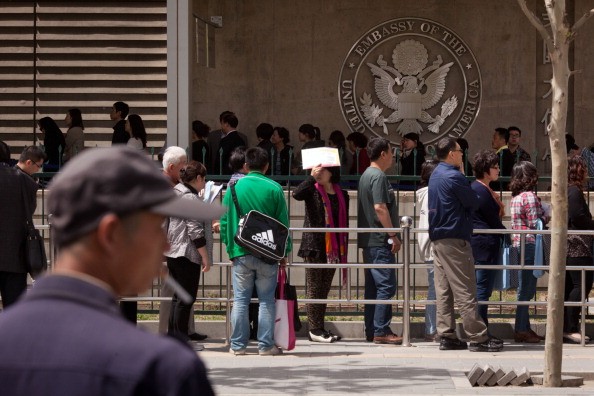The current U.S. administration has shortened the expiration period of visa renewal without interview for Chinese citizens from 48 months to 12 months. Experts believe that this is linked to the determination of current U.S. President Donald Trump to restrain illegal immigration.
A published note on the website of the U.S. embassy in China has been changed. It now says: "If Chinese citizens previously received a U.S. visa that expired within the last 12 months and they are returning to the country for the same purpose of travel, they may be able to obtain a visa without coming to the consulate for an interview."
Previously, it was indicated as 48 months.
According to an agent that provides visa services, this change will make it harder for Chinese citizens to apply for a visa. This, however, will have little influence for citizens who hold a 10-year travel visa.
Last November, the U.S. required Chinese citizens with 10-year B1, B2 or B1/B2 visa to update their biographical information from their visa application through the Electronic Visa Update System before they will be able to travel to the country. They require this update to be done every two years, or upon getting a new visa, or upon getting a new passport, whichever occurs first.
Li Haidong, a professor at the Institute of International Relations of China Foreign Affairs University, said: "The change in the rule might be related to Trump's attitude to immigration and it will have a negative effect on people-to-people and cultural exchanges between China and the U.S."
"It may not be a China-specific policy but part of a global strategic shift, showing Trump's determination to prevent illegal immigration," he added.
According to a report issued by the Asia Society, a task force of Chinese experts offered their recommendations to the new Trump administration on the China-U.S. relationship.
The members of the Task Force on U.S.-China Policy include scholars, think tank researchers and former U.S. government officials. They have generated a report as well as a set of recommendations to assist the new U.S. administration in formulating a China strategy that will protect U.S. national interests



























